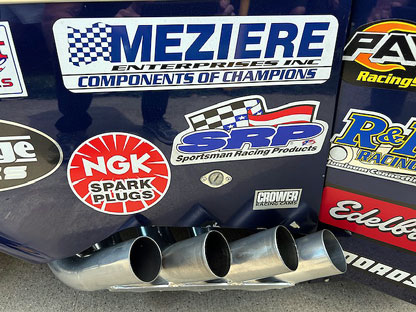Dumb Goodwill To Believe
…the oldest and most secret processes of
all “knowledge and cognition”:
there as here,
rash hypotheses, fictions,
the dumb good will to “believe,”
and a lack of mistrust and patience develop first
– our senses learn late and never fully learn
to be refined, trusty, careful organs of knowledge.
Given some stimulus,
our eyes
find it more convenient
to reproduce an image
that they have often produced before
than to register what is different and new
about an impression:
the latter requires more strength, more “morality.”
Beyond Good and Evil, by Friedrich Nietzsche, trans. by Judith Butler, aphorism 192
Yesterday afternoon was dedicated to enjoyment of the sights, sounds, the competition at Great Lakes Drag-a-way. The loping rumble of an idling race engine, and the screaming note of a car in violent starting line launch, beckon the senses!
The event was a respite from the ordinary of my day-to-day, which becomes tedium, a “same old, same old” of what one is accustomed to seeing, to hearing, to doing. Drag cars are unique expressions of the owner/driver/crew members taste, limits of imagination, and of courage.
To speak personally for myself, the race track experience is an exercise to “slow down,” to pay attention to detail. Resisting the loss-of-self that occurs, a default, the ennui of routine of my life is reshuffled by being at the track. In the day-to-day I get by, I rely upon the familiar, skating by with a dumb will to believe, on auto-pilot I do almost nothing to strengthen my critical faculties.
At the race track, critical faculties are sharpened, by observation, and particularly when I am privileged to have extended conversations with car owners, with drivers. I hear the stories of the trial and error development of the combination of engine and chassis, delicately tuned, to improve acceleration one tenth at a time. The process often takes years. The work is most satisfying. Drag cars are exercises in patience, in careful observation to identify what matters, what is relevant to the singular problem presented by circumstance.
Nathan and I soaked in the stimulation of sight and sound.
Indeed, the most important of all lessons, is never finally learned: to make the senses refined, trusty, careful, organs of knowledge.
A few images of what we saw:













